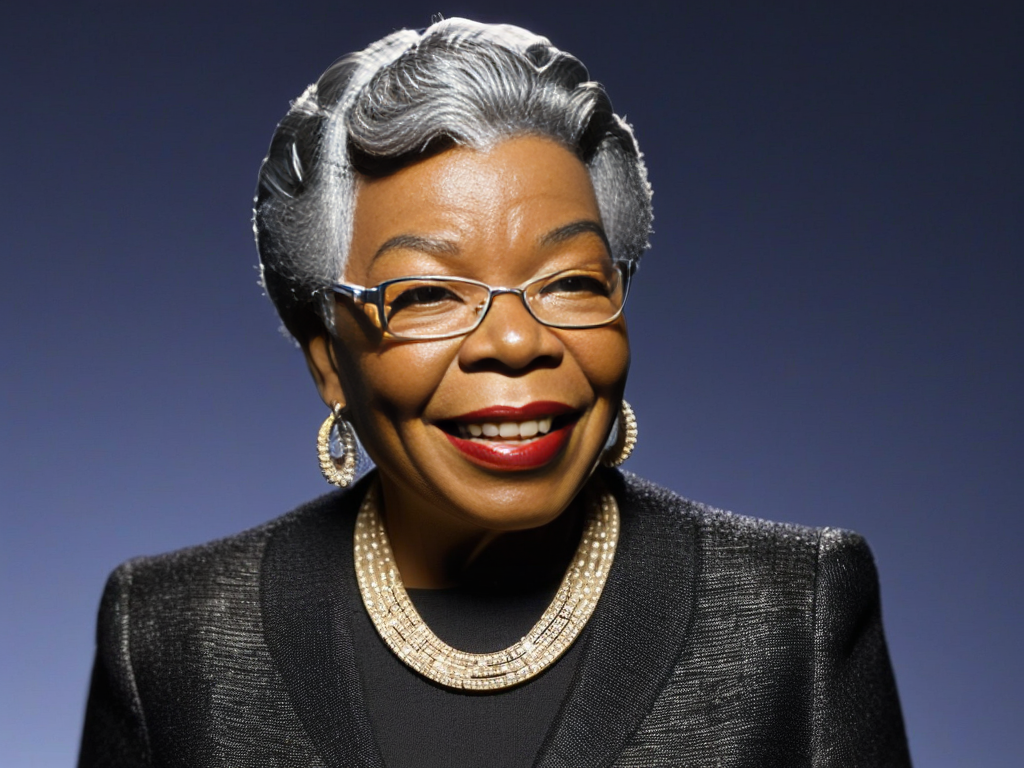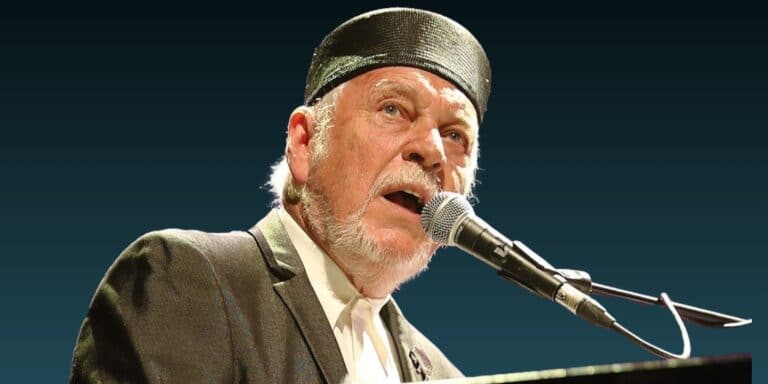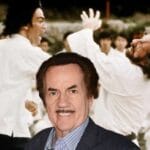Dr. Maya Angelou passed quietly in her home before 8:00 a.m. EST. Her family is extremely grateful that a loss of acuity or comprehension did not belabour her ascension. She lived as a teacher, activist, artist and human being. She was a warrior for equality, tolerance and peace. The family appreciates our time with her and knows she looks down on us with love.
Life And Struggles
Maya Angelou was more than just a poet and author – she was a trailblazer, a beacon of hope, and a voice for the voiceless. Her words continue to inspire and uplift us today, reminding us of the power of resilience, courage, and love.
Born Marguerite Ann Johnson on April 4, 1928, in St. Louis, Missouri, Maya Angelou’s childhood was marked by hardship and struggle. At the age of eight, she was raped by her mother’s boyfriend, a trauma that silenced her for years. But through the power of writing and storytelling, Angelou found her voice and began to heal.

In her autobiographical works, such as “I Know Why the Caged Bird Sings” and “Gather Together in My Name,” Angelou courageously shared her experiences of racism, sexism, and trauma. Her honesty and vulnerability showed us the importance of facing our past and embracing our truths, no matter how painful.
But it was in her poetry that Maya Angelou truly shined. Her words were like music, flowing and rhythmic, touching the depths of our souls. In collections such as “Just Give Me a Cool Drink of Water ‘Fore I Die” and “And Still I Rise,” Angelou explored identity, empowerment, and resilience themes. Her poetry spoke to the marginalized and oppressed, giving them a voice and a sense of belonging.
Maya Angelou was not just a poet and author – she was also a civil rights activist and a champion for social justice. She worked alongside icons like Martin Luther King Jr. and Malcolm X, using her words to fight for equality and freedom. Her impact on the Civil Rights Movement was profound, inspiring a generation to rise and demand change.
But Angelou was also a woman of many talents, including cooking. Her love for food and entertaining was evident in her cookbook, “Hallelujah! The Welcome Table,” where she shared her favourite recipes and stories. From Southern classics like fried chicken and collard greens to international dishes like pasta carbonara and beef curry, Angelou’s culinary creations reflected her diverse influences and experiences.
As we remember Maya Angelou, let us honor her legacy by embracing her words of wisdom, compassion, and resilience. Let us learn from her life lessons and continue to fight for justice and equality. And let us celebrate her spirit through her favourite recipes, sharing meals and stories that unite us in love and unity.
Maya Angelou may be gone, but her words continue to resonate with us, inspiring us to rise above adversity and shine brightly, just as she did. Thank you, Maya, for your courage, strength, and limitless love. You will always be remembered and cherished in our hearts.
(Reuters) – American author and poet Maya Angelou, whose groundbreaking memoir “I Kgroundbreakingged Bird Sings” earned her international acclaim with its unflinching account of rape and racism in the segregated South, died on Wednesday at age 86.
The prolific African-American writer, known for her lyrical prose and regal speaking voice, died quietly at her home in Winston-Salem, North Carolina, Angelou’s family said in a statement. No cause of death was given.
Major League Baseball had planned to honor her in Houston on Friday as part of the Civil Rights Game festivities, but Angelou announced last week that she could not attend due to health reasons.
During her varied career, Angelou, a civil rights activist, playwright, actress, singer, dancer, and professor, penned more than 30 books and won numerous awards, including the country’s highest civilian honor, the Presidential Medal of Freedom, from President Barack Obama in 2011.
Her latest work, “Mom & Me & Mom,” about her mother and grandmother and what they taught her, was released last year. In her last tweet on May 23, Angelou said, “Listen to yourself, and in that quietude, you might hear the voice of God.”
Literary and entertainment figures, politicians and fans mourned her passing on Wednesday.
Obama said his sister, Maya, was named after the author, whom he called “a brilliant writer, a fierce friend and a truly phenomenal woman.”
“A childhood of suffering and abuse drove her to stop speaking – but the voice she found helped generations of Americans find their rainbow amidst the clouds and inspired the rest of us to be our best selves,” Obama said in a statement.
Media mogul Oprah Winfrey, who frequently threw lavish birthday parties for Angelou and considered her a mentor, said she would remember her friend most for how she lived her life.
“She moved through the world with unshakeable calm, confidence and a fierce grace,” Winfrey said.
SILENT PERIOD
Angelou, who was 6 feet tall, was born Marguerite Johnson in St. Louis, Missouri, on April 4, 1928. She spent part of her childhood in Stamps, Arkansas, with her grandmother after her parents divorced.
At age 7, Angelou was raped by her mother’s boyfriend, who was later beaten to death in an assault that some believed was carried out by Angelou’s uncles. The trauma of the rape and her assailant’s death left Angelou mute for six years.
She began writing during that silent period. She would chronicle the first 17 years of her life in the 1969 autobiography “I Know Why the Caged Bird Sings,” which her friend, writer James Baldwin, had encouraged her to write.
The book, which covers the racism Angelou faced in the 1930s and ’40s and her fantasies of being blond and white, is considered an American classic.
She never went to college but collected more than 30 honorary degrees. As a teenager, Angelou moved to San Francisco, where she pursued an entertainment career, became an unwed mother at 17, and found a job as a streetcar conductor.
Working as a calypso singer and dancer, she changed her name to Maya Angelou – based on a childhood nickname and the last name of her first of at least three husbands, Tosh Angelos.
In the late 1950s, she moved to New York and joined the Harlem Writers Guild before going to Africa, where she worked for newspapers in Cairo and Accra, Ghana.
In subsequent years, she mixed writing with singing and worked on projects with civil rights leaders Martin Luther King Jr. and Malcolm X. For years; she did not celebrate her birthday because it coincided with the anniversary of King’s assassination.
She was a Grammy winner for three spoken-word albums.
Nathan O. Hatch, the president of Wake Forest University, where Angelou had been a professor of American studies since 1982, said she was a “towering figure” at the school and in American culture with a profound influence on civil rights and racial reconciliation.
In addition to “Mom & Me & Mom,” Angelou’s other autobiographical works included “Gather Together in My Name,” “Singin’ and Swingin’ and Gettin’ Merry Like Christmas,” “A Song Flung Up to Heaven,” “Wouldn’t Take Nothing for My Journey Now,” “The Heart of a Woman” and “All God’s Children Need Traveling Shoes.”
At Bill Clinton’s request, Angelou wrote “On the Pulse of Morning” and recited the poem at his 1993 presidential inauguration.
“We share the gratitude of so many for Dr. Angelou’s contributions to literature, human rights, and social justice. Her legacy is one that all writers and readers worldwide can admire and aspire to,” said Harold Augenbraum, the executive director of the National Book Foundation.
(Additional reporting by Patricia Reaney in New York; Editing by Paul Simao).








Commentary: Maya Angelou – an American messenger, a universal message (Caribbeannewsnow.com)
By Sir Ronald Sanders
A remarkable American voice has been stilled, but the entire world is poorer for it. Many of us – including me – never met Maya Angelou, yet her writing and especially her poetry had a profound effect upon us.
Maya Angelou put into prose and poetry the emotions felt by ordinary people about events that touched us all. In doing so, she expressed the aspirations of millions and the hopes they share for a better world. In A Brave and Startling Truth, a poem that she wrote and recited at a ceremony marking the 50th anniversary of the United Nations — a poem dedicated more to what the United Nations could be than to what it is — she identified the contradictions of man’s behaviour to his fellow man.
We, this people, on a small and lonely planet
Traveling through casual space
Past aloof stars, across the way of indifferent suns
To a destination where all signs tell us
It is possible and imperative that we learn
A brave and startling truth.
And what is that truth? It is, in part, that:
We, this people, on this small and drifting planet
Whose hands can strike with such abandon
That in a twinkling, life is sapped from the living
Yet those same hands can touch with such healing, irresistible tenderness
That the haughty neck is happy to bow
And the proud back is glad to bend
Out of such chaos, of such contradiction
We learn that we are neither devils nor divines.
But, she ends that we are yet to come to that essential understanding, and leaves us with the enduring hope that we – the people of the world – may yet do so.
When we come to it
We must confess that we are the possible
We are the miraculous, the true wonder of this world
That is when, and only when
We come to it.
The depth of these feelings and the capacity to express them so exquisitely came from a woman whose formal education did not go beyond high school, who was raped at the age of eight by her mother’s boyfriend, who was pregnant at 17, and whose deprived circumstances – no less than her race — forced her to work as a prostitute, a restaurant cook, a street car conductor and a cabaret dancer. This same woman was the recipient of more than 30 honorary doctorates from colleges that revered the authenticity of her work and the legitimacy of her voice — a voice that could express itself in six languages.
On his inauguration as president of South Africa, that most famous of all prisoners – the quintessential symbol of men and women imprisoned for standing-up for rights and fighting for justice – Nelson Mandela touchingly and poignantly read Maya Angelou’s Still I Rise.
Out of the huts of history’s shame
I rise
Up from a past that’s rooted in pain
I rise
I’m a black ocean, leaping and wide,
Welling and swelling I bear in the tide.
Leaving behind nights of terror and fear
I rise
Into a daybreak that’s wondrously clear
I rise
Bringing the gifts that my ancestors gave,
I am the dream and the hope of the slave.
I rise
I rise
I rise.
And while Nelson Mandela connected with that poem and recited it to proclaim his own truth, it also resonates within former colonies whose people were enslaved and who rose above the most heinous and harshest abuse, to carve for themselves a place in the world. Maya Angelou spoke for them too.
Just as Still I Rise could be the anthem of the peoples of developing countries who were exploited for generations, so too does I Know Why the Caged Bird Sings represent their desire to break free of the cage in which the unfairness of the international economic and political system continues to ensnare them.
A caged bird stands on the grave of dreams
his shadow shouts on a nightmare scream
his wings are clipped and his feet are tied
so he opens his throat to sing
The caged bird sings
with a fearful trill
of things unknown
but longed for still
and his tune is heard
on the distant hill
for the caged bird
sings of freedom.
Hers was not the poetry and prose learned and recited by schoolchildren in many developing countries, including the Caribbean. The diet was Shakespeare, Chaucer, Keats, Kipling and Wordsworth – each valuable in their own way, but none spoke with the relevance and gut-wrenching significance of this remarkable woman, Maya Angelou. Her work should be on the reading list of every secondary school and college.
American by birth with experience born of the reality of being black and a woman, she also lived in Ghana and associated herself with Malcolm X and Martin Luther King in the tortuous – often brutal – Civil Rights struggle in the United States.
But something within her made her understanding universal; America was her country but the world was her constituency and so, particularly, people who yearn for equity, for tolerance and for peace.
In 1993, when Bill Clinton was elected president – touted in those days as the first ‘black’ president of the United States because of his identification with black causes — Maya Angelou was invited to recite a poem as part of the ceremony. Symbolically naming the United States as ‘the rock, the river and the tree’ she said On the Pulse of a Morning:
Do not be wedded forever
To fear, yoked eternally
To brutishness.
The horizon leans forward,
Offering you space to place new steps of change.
Here, on the pulse of this fine day
You may have the courage
To look up and out upon me, the
Rock, the River, the Tree, your country.
No less to Midas than the mendicant.
No less to you now than the mastodon then.
Here on the pulse of this new day
You may have the grace to look up and out
And into your sister’s eyes, into
Your brother’s face, your country
And say simply
Very simply
With hope
Good morning.
Asked later if Clinton’s presidency had satisfied the hopefulness of the poem, she said: “No. But fortunately there is that point about hope: it is never satisfied. It is met, sometimes, but never satisfied. If it was satisfied, you’d be hopeless.”
It is hopefulness that is the diamond that sparkles amongst her legacy to the world along with the remarkable wisdom of her arresting and insightful work.
Maya Angelou was – as she said in her poem Phenomenal Woman – “Phenomenally. Phenomenal woman, that’s me.”
© Copyright to this article is held by Sir Ronald Sanders and its reproduction or republication by any media or transmission by radio or television without his prior written permission is an infringement of the law. Republished with permission.
Dr. Maya Angelou is one of the most renowned and influential voices of our time. Hailed as a global renaissance woman, Dr. Angelou is a celebrated poet, memoirist, novelist, educator, dramatist, producer, actress, historian, filmmaker, and civil rights activist.
Born on April 4th, 1928, in St. Louis, Missouri, Dr. Angelou was raised in St. Louis and Stamps, Arkansas. In Stamps, Dr. Angelou experienced the brutality of racial discrimination, but she also absorbed the unshakable faith and values of traditional African-American family, community, and culture.
As a teenager, Dr. Angelou’s love for the arts won her a scholarship to study dance and drama at San Francisco’s Labor School. At 14, she dropped out to become San Francisco’s first African-American female cable car conductor. She later finished high school, giving birth to her son, Guy, a few weeks after graduation. As a young single mother, she supported her son by working as a waitress and cook, however her passion for music, dance, performance, and poetry would soon take center stage.
See full bio